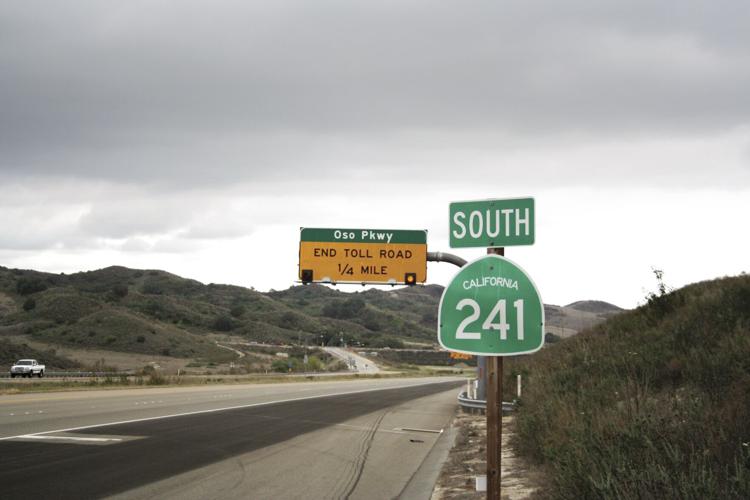By Lillian Boyd, Dana Point Times
As 2019 wraps up, a class-action lawsuit stemming from a 2015 complaint against two Orange County transportation agencies is still pending litigation—with a potential settlement costing millions.
The suit alleges that the Orange County Transportation Authority (OCTA), Transportation Corridor Agencies (TCA) and the companies contracted for customer service and fee collections misused personal identifiable information (PII) of customers and motorists, such as license plates, and exploited those who failed to pay tolls upon use.
The plaintiffs, various California motorists, detail instances in which their failure to pay one-time tolls online resulted in thousands of dollars in penalty fees, car liens, car repossessions, and damaged credit. One plaintiff’s toll fees added up to roughly $3,500, with toll evasion penalty fees adding up to about $55,000.
“The conversion to a cashless system was deceptively and negligently designed and implemented by defendants to cause a radical increase in violations (and thus revenue) for defendants,” the complaint states. “Defendants have exploited the statutory scheme under which the toll roads were authorized in California to ensnare unsuspecting California commuters in a confusing maze. This exploitation has exposed how untenable the statutory scheme is.”
The class action seeks damages and injunctive relief (court order for the defendant to stop a specified act or behavior), based on arguments that the defendants had violated the Excessive Fines and Due Process Clauses of the U.S. Constitution, as well as similar rights within the state Constitution.
“Any argument that the TCA violates the prohibition on excessive fines just by assessing proportionally larger penalties must fail,” the judge ruled. “…the evidence shows that TCA doesn’t systematically require payment of the full amount of all penalties assessed.”
In the instance of the $55,000 bill, Plaintiff David Coulter, a California resident, drove on Toll Road 91 (operated by OCTA) and other toll roads, from November 2014 through 2015. Coulter was notified of the amount owed and his PII was allegedly provided to the Department of Motor Vehicles, the California Franchise Tax Board, car rental agencies and banking institutions.
Another plaintiff, James Watkins, was 84 years old at the time the original complaint was made. The suit states that Watkins’ vehicle was not equipped with the FasTrak® transponder when he had driven on toll roads, including Toll Road 73 (operated by the TCA) approximately six times. The tolls added up to about $212, but evasion fines increased the debt to about $1,200.
“Watkins has been financially unable to pay any of the amounts requested, and a hold has been placed on his vehicle registration,” the suit states, adding: “The TCA Defendants have attempted to repossess Watkins’ vehicle, and have caused (Wells Fargo Bank) to place an administrative hold on an account related to Mr. Watkins’ family member.”
TCA officials have stated that the agency does not repossess vehicles.
The suit includes six other individual plaintiffs with similarly assessed penalties—although not as severe—including plaintiff Lori Myers.
According to the suit, Myers commuted on Toll Road 241 almost daily for work using a transponder. When her FasTrak balance dropped below the toll threshold, payments were deducted from her bank account.
“Myers was not aware she was being issued citations for nonpayment until she received a Notice of Toll Evasion with multiple citations in the mail,” the complaint states.
The notices informed her that she owed hundreds of dollars in penalties with a warning that her vehicle registration would be subjected to a lien if she did not respond in a timely manner. According to the complaint, Myers paid penalties in April 2016, aggregating more than 1,000% of the underlying tolls.
Comparable lawsuits, with shared plaintiff representation, are pending throughout the state. Lawsuits against transportation agencies in San Francisco, San Diego, Riverside County and Los Angeles County argue violations of the California Streets and Highways Code §31490.
According to a marketing document for California toll road agencies in support of SB 664, including TCA and OCTA, “Toll agencies across the state are currently the target of various frivolous lawsuits alleging that they are violating restrictions in current law related to sharing PII even though usage of such PII occurs in the normal course of doing business when operating a toll facility.”
Kit Cole, a spokesperson for the TCA, says she is unable to comment on pending litigation, but did say that it was unfortunate that government agencies are having to use taxpayer and toll payer money on lawsuits of this nature.
At this time, if a motorist has driven The Toll Roads (State Routes 73, 133, 241, 261) without a FasTrak® account, they can pay tolls within five days before or five days after the drive by visiting thetollroads.com.
Legislation on the Table
Senate Bill 664, authored by state Sen. Ben Allen (D-Santa Monica), aims to remove ambiguity about toll agencies’ ability to use a customers’ personally identifiable information.
According to the TCA, the bill will clarify how agencies should communicate with the DMV to obtain contact information for toll violators, communicate with each other to properly bill customers who travel through more than one jurisdiction’s toll facilities (using one transponder statewide) and contract with contractors or sub-contractors to help with toll collections and enforcement.
The bill prohibits transportation agencies from using or providing PII for purposes of issuing public safety and travel alerts, or customer surveys, unless the transportation agency has received express written consent to do so. It clarifies the efforts a transportation agency can take to obtain accurate information of the registered owner’s address if a violation notice is returned in the mail, and ensures the owner has adequate time for responding.
SB 664 also maintains prohibitions on the use of customer data and statutory remedies if PII is not handled properly, including penalties ranging from $2,500 to $4,000 per violation.
According to marketing for California toll road agencies in support of SB 664, including TCA and OCTA, “toll agencies have been abiding by the law and have never sold customer information to third parties.”
Others see the bill as a get-out-of-jail-free card.
“The transit agencies are apparently saying that there have been so many violations, if they don’t receive retroactive protection, they could be wiped out,” Rosemary Shahan, president of Consumers for Auto Reliability and Safety, a Sacramento advocacy group, told Los Angeles Times.
The bill is currently being reviewed in the state assembly.
Current state law provides regulation for how toll facility operators process toll violations and communicate information with other toll operators and customers.
To ensure that information about vehicle owners and drivers acquired by toll agencies in the course of operating toll facilities was not sold to third parties or used for inappropriate purposes, SB 1268 was passed in 2010, and revised again in 2013 with the passage of AB 179, to protect the PII of customers who use electronic transit fare payment cards, such as the Bay Area’s Clipper card and the LA Metro’s TAP card.
Settlement on the Horizon?
Despite several mediation meetings, including one 19-hour settlement meeting that lasted until 4:30 a.m., settlement has yet to be officially made. Mediation is a structured process in which an impartial third party assists disputing parties in resolving conflict through the use of specialized communication and negotiation techniques.
According to transcripts of a motion hearing in August for the In Re Toll Roads Litigation, the TCA, 3M and BRiC-TPS LLC had reached a settlement in principal with the plaintiffs. OCTA, however, had not.
3M and BRiC, former and current contracted companies with TCA, respectively, were hired to conduct transaction management, customer service and violation processing on behalf of the TCA.
“We have never been opposed to attempting settlement. We’ve had several conversations with the plaintiffs about the possibility of a settlement,” said Lois Bobak, an attorney representing OCTA. “…As a practical matter, there are things that would be very difficult to change in the way that roads operate. It’s likely we’re going to continue to go to the DMV to get addresses. We’re going to continue to send information to car rental companies when one of their vehicles violates.”
Bobak added that OCTA would not want to enter into a settlement if there was going to be another class-action lawsuit in the future, making the same arguments.
“The plaintiffs are somewhat constrained in the ability to give us that relief because they’ve got other lawsuits pending in other jurisdictions making the same claims,” Bobak said.
Helen Zeldes, the lead attorney representing the plaintiffs, told the judge that the plaintiffs were in the very early stages of settlement with the TCA.
“One thing I will mention is the TCA (Board of Directors) needs to approve the settlement agreement,” Zeldes said during that motion hearing, adding that she saw no harm in pushing the next hearing 60 days out to let the parties finalize their agreements.
The TCA Board of Directors met on Oct. 10, and in closed session, approved the settlement agreement.
OCTA officials stated they were unable to comment since the lawsuit is ongoing. San Clemente Times made multiple attempts to obtain comment from plaintiffs and their legal team. Zeldes did not return phone calls or email requests. One plaintiff, Lori Myers, stated she did not have any comment, and deferred to Zeldes.
In a document reflecting the Plaintiffs’ request to continue a hearing on a motion to decide key questions for settlement, Plaintiffs and TCA defendants have reportedly made progress on settlement.
“But Plaintiffs seek an additional sixty days to complete the settlement process,” the document states. “…The requested continuance would allow for execution of the long form settlement agreement before the Court rules on the merits of the claims that apply to the settling Defendants. In contrast, proceeding with the hearing and issuing a tentative ruling on the merits risks altering the landscape in a way that could disrupt the settlement process.”
The Plaintiffs argue that the OCTA Defendants would not be prejudiced by a continuance.
As for a future court date, the matter is scheduled to be heard next on Jan. 6, 2020, where the judge will answer key questions posed that may affect future settlement negotiations between the parties.

This image has an empty alt attribute; its file name is LB_1.jpg
Lillian Boyd
Lillian Boyd is the senior editor for Picket Fence Media and city editor for Dana Point Times. She graduated with a degree in journalism from Humboldt State University. Her work experience includes interviewing incarcerated individuals in the Los Angeles County jails, an internship at the Pentagon covering U.S. Army news as well as reporting and anchoring for a local news radio station in Virginia. Follow her on Twitter @Lillianmboyd and follow Dana Point Times at @danapointtimes.








